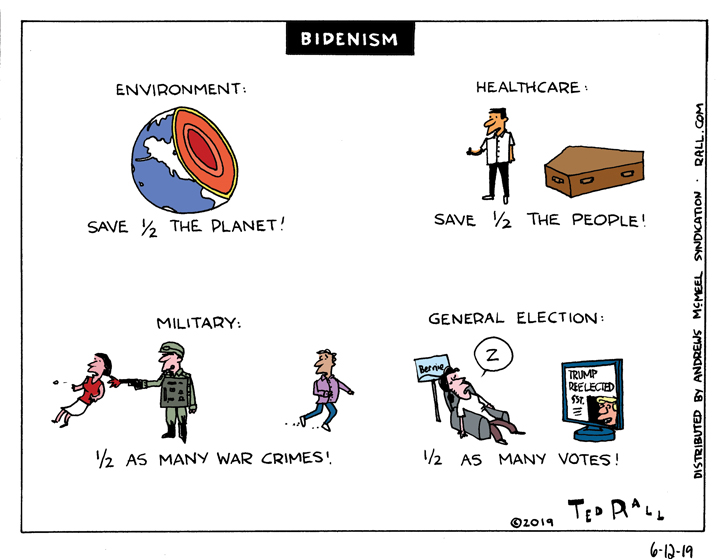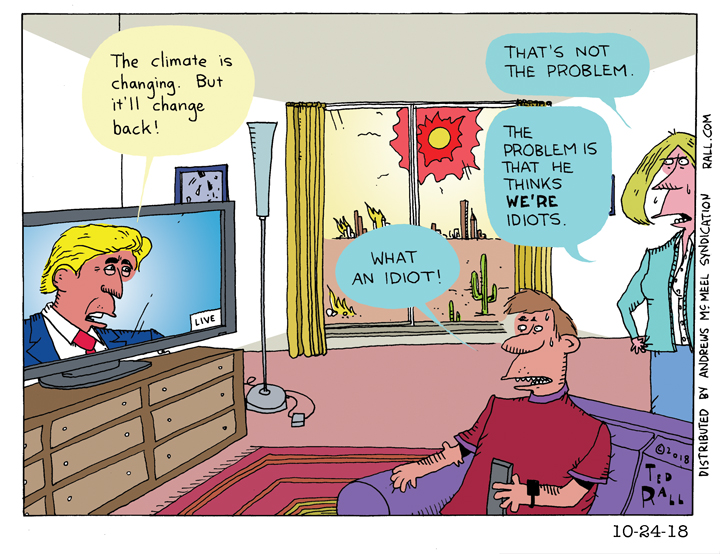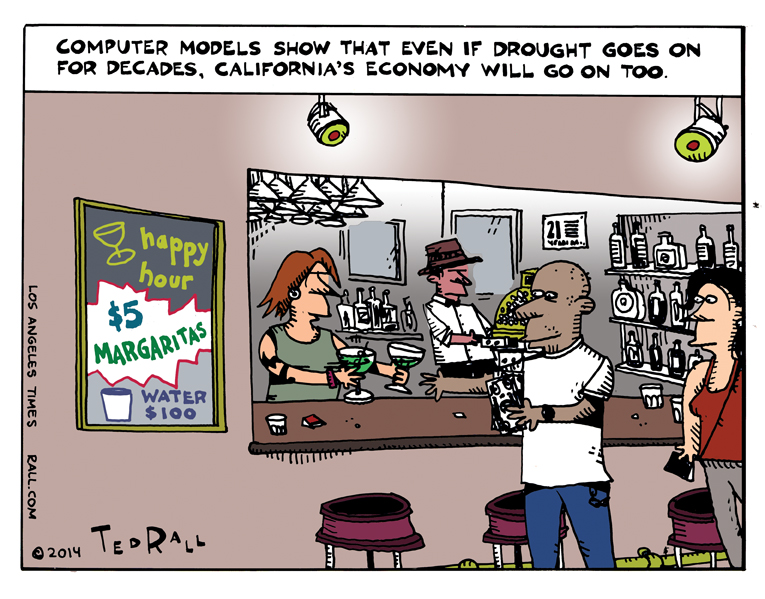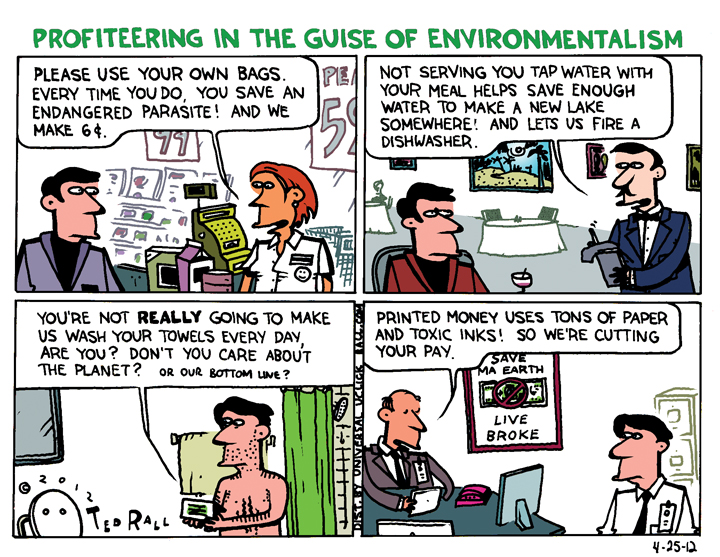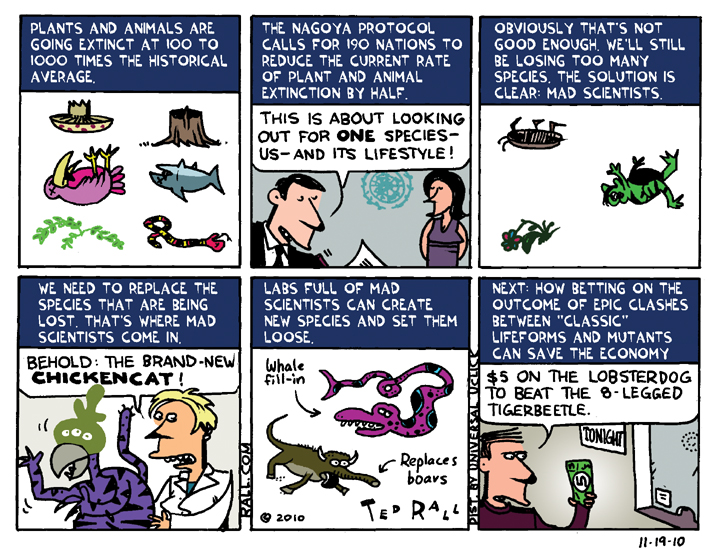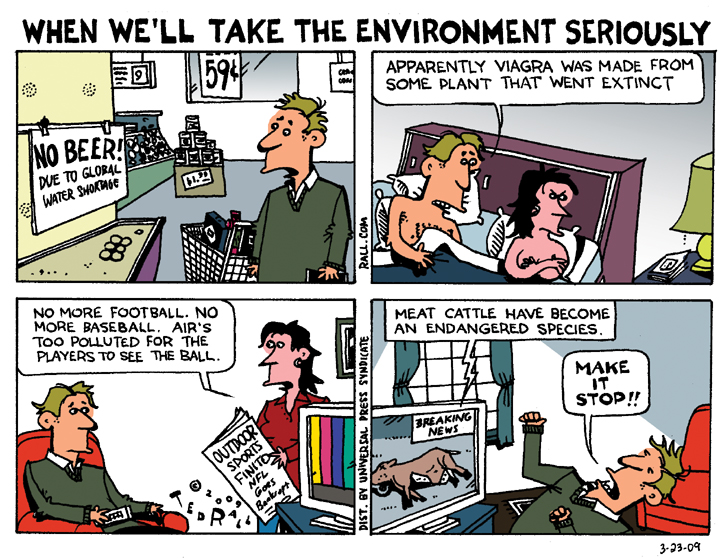“I’m On Fire” by the Garden State’s favorite son Bruce Springsteen could be the soundtrack to a bizarre wildfire season—wild because it’s happening in New Jersey, Connecticut and New York, states that rarely if ever have suffered the extreme drought conditions and sustained unseasonable high temperatures afflicting the Eastern United States and much of the nation. Late last week, New York City was covered with smoke from a brush fire in, wait for it, Brooklyn.
On the TMI Show, co-hosts Ted Rall and Manila Chan ask: Is a five-month drought in a part of the country where rain is normal and standard a harbinger of still worse things to come? Donald Trump has just appointed Lee Zeldin, a right-wing zealot, to head the EPA—will Republican policies accelerate humanity’s attack on the environment? Would people take notice of environmental degradation if temperatures were falling rather than rising? Ted and Manila are joined by Dr. Reese Halter, a distinguished biologist, an award-winning broadcaster, environmentalist and writer who advocates for Planet Earth.
Watch the Video Version:

